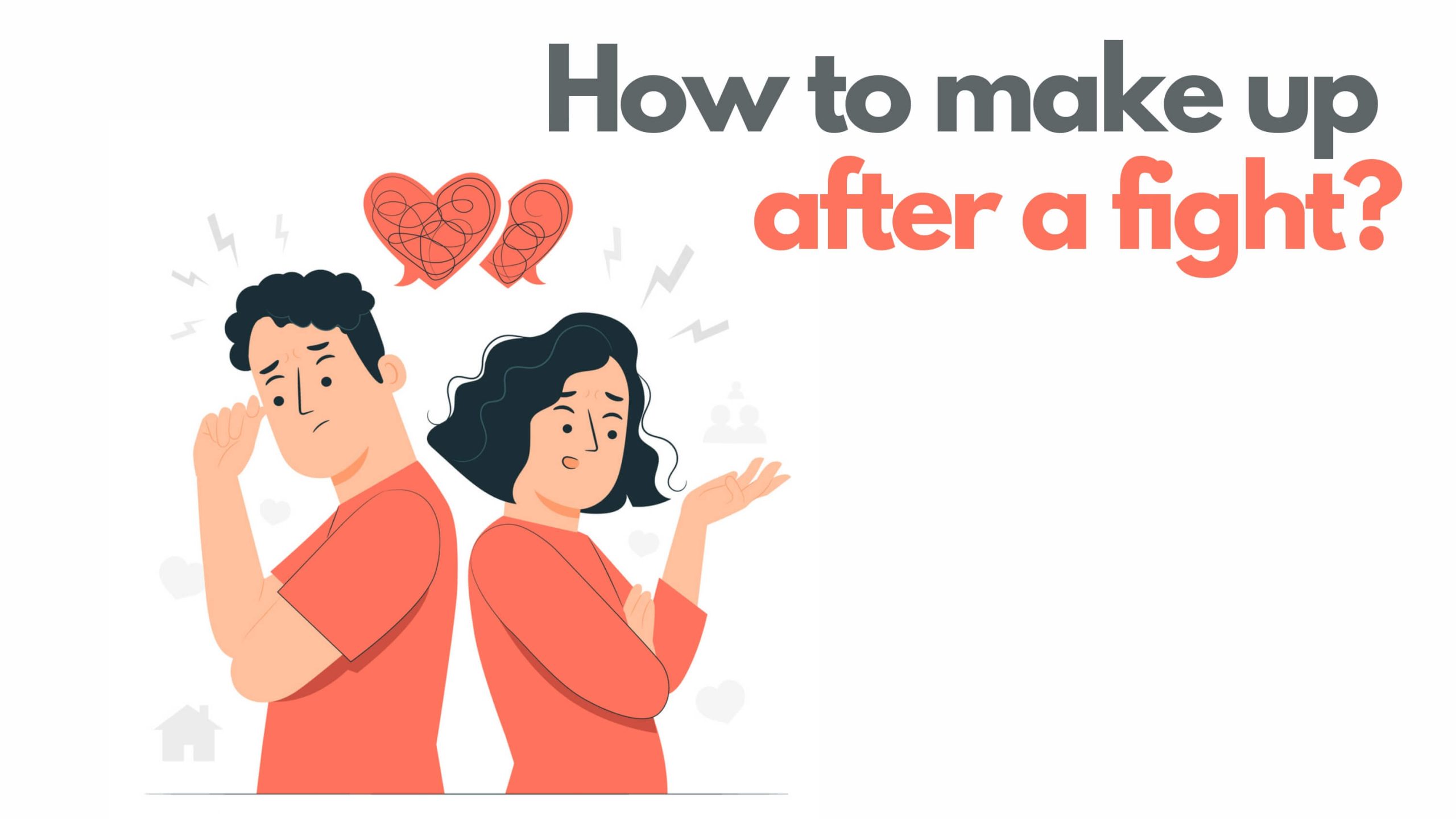Quarrels are a natural part of relationships. Making up is always the best part. Maureen Johnson
All couples have fights. This is also true of other relationships in our lives. It’s likely that we will fight with those around us at some point. A fight, even a bad one, doesn’t have to lead to the end of a relationship or mean that things have to be miserable. Here are a few practical ways to fix things after a fight and start the road to making up fully.
Accept your mistakes
The first step is to accept your mistakes. You might feel the other person was more in the wrong, that’s fine. However, we will rarely find a situation when someone was perfectly and absolutely blameless. Identify the things you feel were not the best and don’t be afraid to acknowledge them.
Doing this doesn’t make you the “loser” of the fight. Instead, it shows that you can take responsibility and are taking steps to make things better. If you accept something that was not correct, the other person can also feel more comfortable accepting and owning up to their errors.
Lighten up the situation
Trying to lighten up the sitation while emotions are still running high might not be the best idea. However, you might find more success after things have cooled off a little.
You might consider making a small joke or talking to the person about something neutral. However, make sure that the joke is not at their expense, nor is it making light of their actual feelings. This is essential to ensure that tensions don’t flare again.
Talk things through
If the issue that led to the fight is likely to come up again, it’s important to talk things through. A good idea is to plan the talk for a situation when both people are calm, have time (probably not a good idea to start the talk as one is rushing out of the door to get to work on time!), and are willing to talk.
While these conversations don’t always feel entirely comfortable, they are essential for the survival of any relationship. It’s important to steer the conversation away from criticism of the other, defensiveness, and other similar tactics, instead focusing on constructive elements: how can WE solve this together?
Be willing to compromise
In a relationship, we can’t always get everything we want. Often, we need to be willing to budge a little. This is not always true. Some issues are too important to compromise on, and we need to know what these issues are in our case. However, there is little point in being stubborn just for the sake of being stubborn. We might be able to compromise on many different things and invite our partner to also seek out a compromise.
Each relationship requires a degree of compromise, and not in the “I grit my teeth, so you’ll give me what I want next.” A compromise can be all about finding a better way of managing things and keeping both people involved comfortable. For example, if one partner adores loud concerts and the other loathes them, a compromise can be to give to smaller concerts, for the partner to go with their friends (while the other enjoys some quiet time at home), or limit the amount of concerts. Both need to be OK with the solution.
Do better
It’s not much use accepting your mistakes if they will be repeated again. If you recognize something as not being the best, a good idea is to try and change it in the future. Sure, you won’t always be able to make an instant change, but you can commit to a way of improving.
Many people just kind of quietly hope the problem goes away by itself, which rarely happens. If we are interested in maintaining the relationship, we do need to do better when we can. Some things will not change, but others can get better and lead to less conflict.
Resolving a fight is often not just about calming down, but proactively addressing the issue that led to the fight in the first place. If you do your part, your partner or friend is more likely to do theirs as well.




